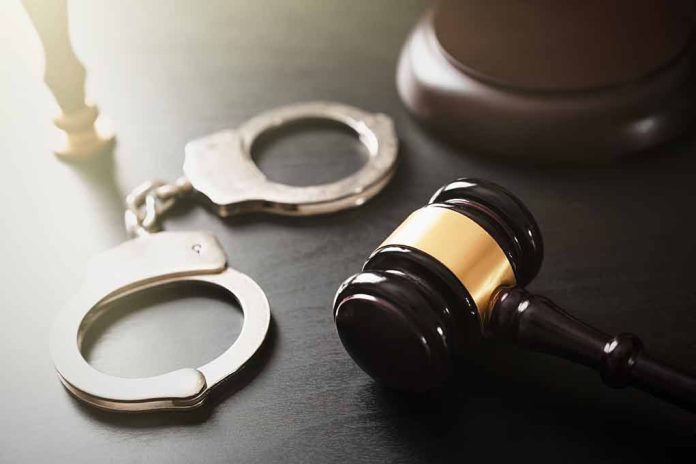
Telegram CEO Pavel Durov’s arrest in France sparks debate on free speech and tech regulation, with Elon Musk and others weighing in.
At a Glance
- Telegram CEO Pavel Durov arrested in France for alleged failure to limit criminal activity on the platform
- Elon Musk and other tech leaders condemn the arrest as a threat to free speech
- Lt. Col. Alexander Vindman warns Musk about potential consequences of free speech absolutism
- The incident highlights growing tensions between tech innovation and government regulation
- Durov faces potential charges with a possible 20-year prison sentence
Arrest of Telegram CEO Ignites Free Speech Debate
The recent arrest of Telegram CEO Pavel Durov at Le Bourget Airport near Paris has sent shockwaves through the tech community and reignited the debate over free speech and content moderation. Durov, a dual citizen of France and the UAE, was reportedly detained for allegedly failing to limit criminal activity on his messaging platform, which boasts over 900 million users worldwide.
Elon Musk, CEO of Tesla and owner of X (formerly Twitter), was quick to condemn the arrest, describing it as “government-imposed censorship” and using the hashtag #FreePavel. Musk’s response has drawn attention to the ongoing struggle between tech companies and regulatory bodies over the boundaries of online speech.
#FreePavel
pic.twitter.com/B7AcJWswMs— Elon Musk (@elonmusk) August 25, 2024
Vindman’s Warning to Musk
Retired Lt. Col. Alexander Vindman, a key figure in the first impeachment of former President Donald Trump, issued a cautionary message to Elon Musk in light of Durov’s arrest. Vindman suggested that Musk should be concerned about the growing intolerance for platforms that spread disinformation and malign influence.
“While Durov holds French citizenship, is arrested for violating French law, this has broader implications for other social media, including Twitter,” Vindman wrote. “There’s a growing intolerance for platforming disinfo & malign influence & a growing appetite for accountability. Musk should be nervous.”
Vindman’s comments highlight the complex balance between protecting free speech and addressing the spread of harmful content on social media platforms. His warning to Musk underscores the potential consequences that tech leaders may face if they adopt an absolutist approach to free speech.
Tech Community Rallies Behind Durov
The arrest of Pavel Durov has united many prominent figures in the tech world in opposition to what they view as an attack on free speech. Edward Snowden, the former NSA whistleblower, expressed his dismay on X, calling the arrest “an assault on the basic human rights of speech and association.”
“The arrest of @Durov is an assault on the basic human rights of speech and association. I am surprised and deeply saddened that (French President Emmanuel) Macron has descended to the level of taking hostages as a means for gaining access to private communications. It lowers not only France, but the world,” said Edward Snowden, former NSA whistleblower.
Other tech leaders, including Balaji Srinivasan and Paul Graham, have also voiced their concerns about the arrest and its potential implications for innovation and free speech. The incident has sparked a broader conversation about the role of government regulation in the digital age and the responsibilities of tech companies in moderating content on their platforms.
Implications for the Future of Tech and Free Speech
The arrest of Pavel Durov and the ensuing debate highlight the growing tensions between tech innovation and government regulation. As social media platforms continue to play an increasingly important role in public discourse, the question of how to balance free speech with the need to combat disinformation and illegal activities remains a pressing issue.
For tech leaders like Elon Musk, who have championed free speech on their platforms, the incident serves as a stark reminder of the potential consequences of taking an absolutist stance. As governments around the world seek to exert more control over digital spaces, the tech industry may need to find new ways to navigate these complex issues while preserving the principles of open communication and innovation.
As the situation continues to unfold, the global tech community will be watching closely to see how this case impacts the future of online speech and the relationship between tech companies and regulatory bodies.





